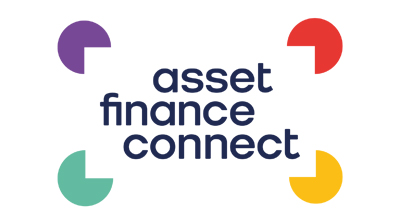As a result of the largest tax measures for companies announced in the Budget, businesses will now benefit from:
- Full expensing – which offers 100% first-year relief to companies on qualifying new main rate plant and machinery investments from 1st April 2023 until 31st March 2026.
- The 50% first-year allowance (FYA) for expenditure by companies on new special rate (including long life) assets until 31st March 2026.
- The Annual Investment Allowance (AIA) providing 100% first-year relief for plant and machinery investments up to £1 million, which is available for all businesses including unincorporated businesses and most partnerships.
Plant and machinery that may qualify for full expensing includes (but not limited to): vehicles such as vans, lorries and tractors (but not cars); machines such as computers, printers, lathes and planers; office equipment such as desks and chairs; warehousing equipment such as forklift trucks, pallet trucks, shelving and stackers; tools such as ladders and drills; and construction equipment such as excavators, compactors, and bulldozers.
According to the Treasury, the plant and machinery must be new and unused, must not be a car, given to the company as a gift, or bought to lease to someone else.
Commenting on the full expensing announcement in the Budget, Stephen Haddrill, Director General of the Finance & Leasing Association (FLA), said: “When it comes to pro-business measures, I am delighted to see that the Chancellor has adopted our proposal for the full expensing of business investment.We look forward to seeing the details of how leasing will be handled within the regime.”
Paul Goodman, Chair of the National Association of Commercial Finance Brokers (NACFB) made the following comment: “The NACFB welcomes the ability for businesses to deduct the cost of any eligible investment from their corporation tax bills straight away. We hope that ‘full expensing’ will increase business investment by the 3% projected but we were disappointed not to see more ambitious plans over the longer-term via greater incentivisation.”
Joanna Morris, Head of Marketing and Insight at Novuna Business Finance, commented, "With the growth outlook among small businesses remaining eerily static for the past year with just a third (32%) of small businesses anticipating some form of growth this quarter, any initiative that would encourage investment and expansion is much needed and wanted. The Chancellor’s full capital expensing for IT equipment, plant and machinery, alongside the increase in Annual Investment Allowance to £1m, will make investment more attractive to a business owner. This is a positive step in the right direction."
However, full expensing will not apply to vehicles and assets used for leasing (except where it is under an excluded lease of background plant or machinery for a building), as had been called for by the British Vehicle Rental & Leasing Association (BVRLA) and the wider industry.
On announcing the new allowances, the Government has expressed a commitment to work with the leasing and rental sectors towards some kind of solution, which is a massive step forward and could have an impact in the longer term.
Auto industry:
Providing much-needed relief for drivers, the Chancellor announced in the Budget that he was freezing fuel duty for a further 12 months and maintained the 5 pence per litre cut introduced last year. The measure avoids a potential 12p rise in fuel duty at the end of the month.
However, there was nothing from the Chancellor in his Spring Budget on electric vehicle (EV) infrastructure, disappointing many in the fleet sector.
Mike Hawes, SMMT Chief Executive, said, “There is little, however, that enables the UK to compete with the massive packages of support to power a green transition that are available elsewhere. Indeed, the announced fuel duty freeze contrasts with an absence of measures to boost uptake of zero emission vehicles, such as reducing VAT on public charging. We, therefore, look forward to additional policy announcements that support advanced manufacturing sectors, as the right conditions will enable the investment that drives growth across the country.”
Back to work:
One aspect of the Budget’s focus for growth was improving the availability of the workforce. This is focused at three different groups:
- The more experienced employees are to be encouraged back to work by the removal of the lifetime pension allowance charge, the increase in the annual pension savings allowance to £60,000 from 6th April 2023 and the increase in the money purchase annual allowance to £10,000 where an individual has already accessed their pension savings.
- Younger employees will benefit from the introduction of free childcare from nine months where both parents are employed (and earning less than £100,000 each). This is being introduced in stages from April 2024. Individuals benefiting from Universal Credit childcare will now be paid upfront. The measures to widen free childcare will facilitate the return of parents, particularly women, back into the workplace.
- The third category is the disabled and the long-term sick, with various measures to help them return to the workplace, including consultations on how to support increased occupational health coverage through the tax system.
The NACFB’s Chair, Paul Goodman commented, “The Chancellor’s ‘back to work’ Spring Budget has sought to address some of the acute labour concerns that the UK has faced since the pandemic, but those returning to the workforce are likely to encounter the same systemic challenges as when they left.”







